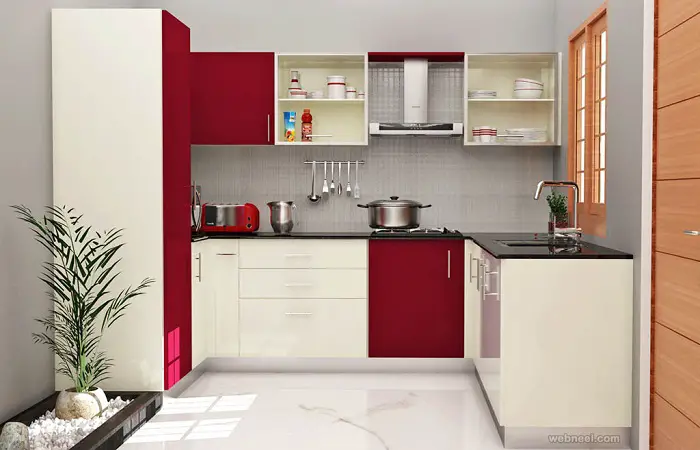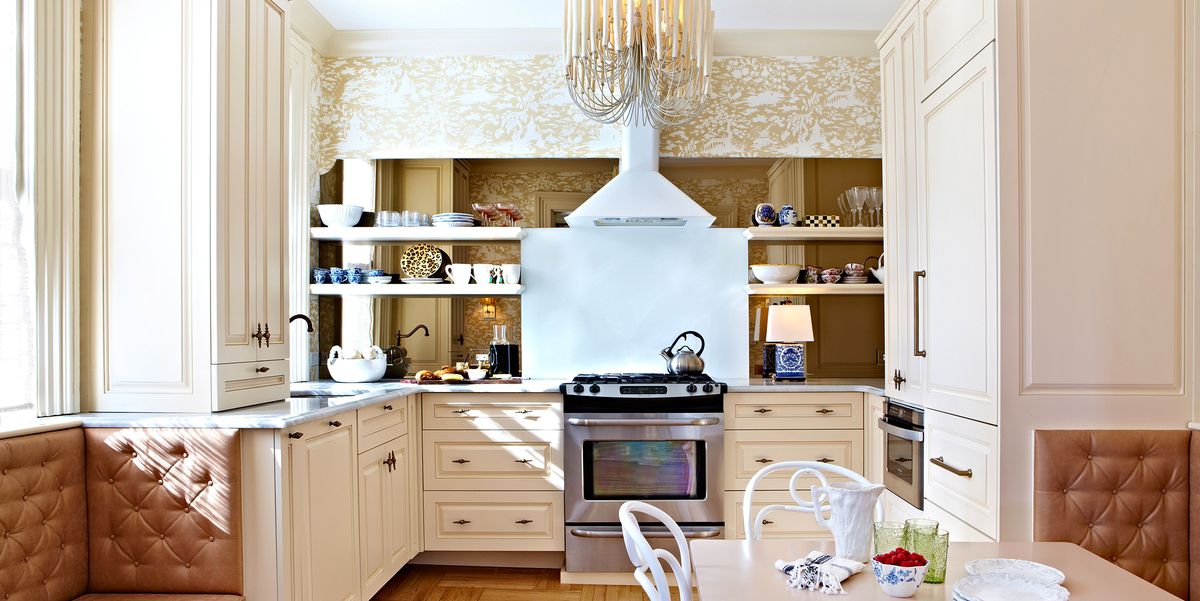The type of material you use in your kitchen space determines your style or theme. For instance, some homeowners prefer natural or artificial stones over other materials when adding countertops to their cooking places.
Examples of natural stones (that occur on their own) include marble and quartzite. On the flip side, those engineered by humans (or artificial stones) include laminate and quartz.
Choosing the right type of stone for your kitchen is essential in creating a connected theme or style. Also, countertops serve as the worktop for various cooking activities, so it’s crucial to choose a material that will meet your needs.
Other factors like durability, color, and ease of cutting may determine your preferences when shopping for stones.
Types of Stones to Add to a Kitchen

As hinted above, there are two types of stones to choose from when looking to install one in your kitchen:
- Natural stones
- Man-made/artificial/engineered stones
Discover more about them below:
Natural Stones
Natural stones are those that occur naturally and are acquired through mining. They are a more expensive option for a countertop than any other stone type. The most common examples include:
- marble,
- onyx,
- granite, and
- quartzite.
Lastly, natural stones come only in their nature-provided colors and have a non-uniform pattern (which makes them luxurious and pricey)
Man-made Stones
Manufactured stones, on the other hand, are those crafted by human creativity. Some of these stones are engineered to look as pretty and luxurious as their natural counterparts and can be challenging to tell apart if you know little about stones. Some examples include:
- laminate,
- concrete,
- porcelain and
- quartz.
Remember, artificial stones are a more affordable alternative than natural versions. Nevertheless, you’ll still find that some manufactured stones are more expensive than others.

Factors for Choosing the Right Stone For Your Kitchen
Your interior design is perhaps the number one factor to consider when shopping. Ask yourself, “what look do I plan to achieve with this kitchen countertop project?
Once you’ve made up your mind, move on to other crucial factors like budget, durability, and so on.
Below are the most important things to consider when buying stones for your kitchen.
1. How much effort/time on maintenance?
When shopping for stones, think about their ease of cleaning. Remember, your countertop should be sparkling all day long, and the type of material used can cause difficulty in maintenance.
Natural stones need frequent maintenance since they are porous, i.e., they allow stains and fluids to seep through their surface.
Therefore, be ready to spend plenty of time and effort working on your marble tabletops. Also, you’ll need to protect them from stains.
In comparison, artificial stones like quartz are easier to maintain because they do not allow stains to seep through their surface.
If you are an avid kitchen cleaner with plenty of time to spare, go for natural stone. If not, consider an easier-to-maintain alternative.
2. What’s your budget?
Your budget determines the type of stone you carry home. Natural stones are more expensive because they occur on their own, so be ready to spend more than you would on engineered stones.
When drafting a budget, remember to consider the installation costs and future expenses, like how much you’ll be spending on maintenance.
If your budget allows, honor your kitchen with the luxury of natural stone. However, go for man-made types if you’re renovating on a tight budget.
3. Is it durable?
Whether you go all-natural or consider artificial types, the stone you choose for your kitchen countertops must be durable.
If you do lots of cooking work, three times a day, the ideal stone must withstand all these activities and stand the test of time. For instance, granite is more resilient and durable than marble.
Though toughness may vary from material to another, both man-made and natural stones are resistant to heat and scratches.
4. What does it look like?
Natural stones do not have a uniform pattern or shade/color, and perhaps, owe their appeal (and expensiveness) to these flaws. This is so because they occur on their own. As a result, all-natural stones come only in shades found in nature.
In comparison, manufactured stones have more uniform looks because they have been engineered to appear that way. Sometimes, manufacturers use different color pigments to add streaks to the stone.

Last Advice on Choosing the Right Stone for your Kitchen
With so much to consider, it is advisable to spend plenty of time researching the different types of stone before you go shopping.
Start by determining the style you’d like to achieve and then move on to other crucial considerations like how much the material costs. Also, don’t forget to consider the stone’s ease of maintenance and durability.
Lastly, always consider the material’s availability because some natural stones are rare and can cost a lump sum to acquire.







Hey Heather, a very nice post, thanks for sharing it!